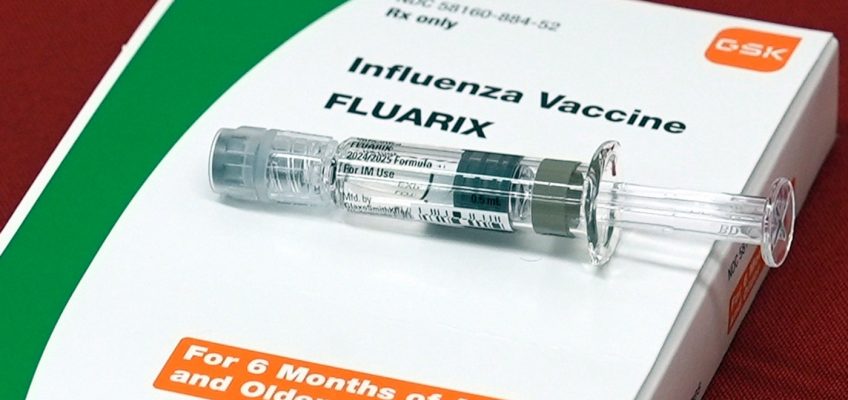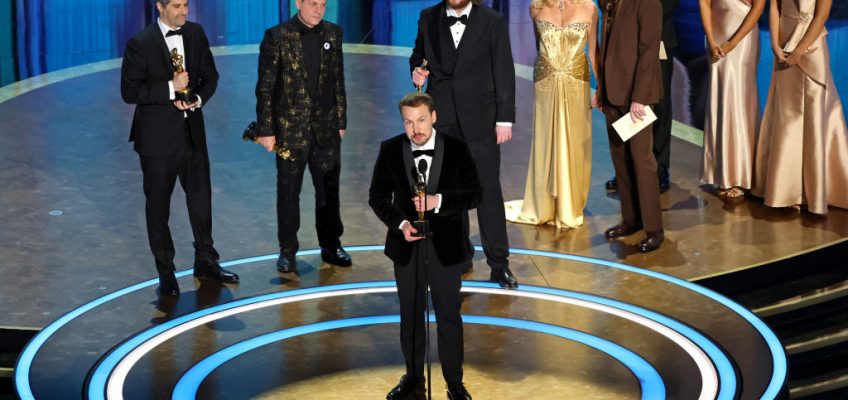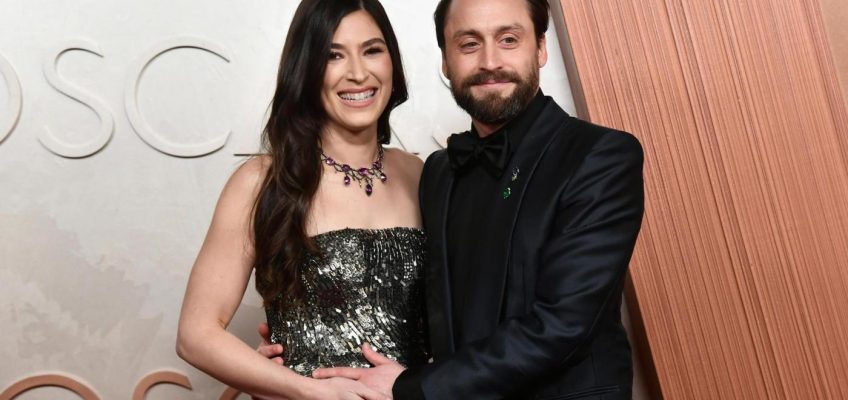This year’s flu season has been miserable and is proving to be among the worst in decades. Now there are growing worries about next year’s flu vaccinations.
This week, the Food and Drug Administration — now with vaccine skeptic Robert F. Kennedy Jr. at the helm — unexpectedly and without reason canceled a March meeting of scientists who advise the FDA on vaccine policy. A similar meeting at the Centers for Disease Control was postponed last week.
Epidemiologist Michael Osterholm, the head of the University of Minnesota Center for Infectious Disease Research and Policy, joined Morning Edition host Cathy Wurzer to talk about the implications of axing the meeting.
Timelines for flu vaccines are tight. Why do cancellations of these March meetings matter?
It takes about six months for the virus that scientists use for the vaccine to grow. It’s then available in late summer or early fall.
“It’s like planting a garden,” Osterholm said. “If you postpone it two months, you might be in trouble when you can harvest, and if you can harvest it at all.”
The timeline is already tight to make an educated estimation on what flu strains will be a problem next year, and the virus can change between now and then.
“But this is our best guess and our best attempt to give us the best match for the virus circulating next winter and what’s in the vaccine,” he said.
Since the vaccine is often grown in chicken eggs, could bird flu affect development?
The short answer is no. And Osterholm said this is some good news among the bad.
“Right after 9/11, when we had so many concerns about terrorism and so forth happening, the U.S. government took extra effort, along with the vaccine manufacturers, to secure the facilities where these chickens actually lay the eggs,” Osterholm said.
The eggs used by scientists are embryonated, meaning they’re fertilized and growing a fetal chicken. The chickens are raised under tight biosecurity.
“The buildings are airtight with special filters,” Osterholm explained. “And so we feel pretty confident that even if a H5N1 situation is occurring in the region where these egg-producing locations are at, we’re still in really good shape.”
Can the vaccines be manufactured without FDA or CDC panel guidance?
The panels evaluate what’s been happening with the flu in the southern hemisphere. The strains circulating there typically predict what’s likely to happen in the U.S. four to five months later, according to Osterholm.
“And without those kind of data, we can’t do that,” he said. “It’s not just something casually done saying, ‘Ah, let’s just go with that one, OK?’ Now there really is a major effort made to come up with the closest match we can. So this timing and the meetings themselves are very, very important.”
If the federal government scales back mass vaccination, how could people still get shots?
“At this point, we are really in the worst place I’ve been in my 50-year career in terms of vaccine-preventable diseases,” Osterholm said.
Several state governments, in line with Kennedy, are increasingly identifying as anti-vaccine. For example, the Surgeon General of Louisiana recently issued a statement saying the state department of health no longer supports vaccine campaigns for children — and for parents that want them, to seek immunizations out independently. In Texas and New Mexico, there’s a worsening outbreak of measles, which the U.S. declared eliminated back in 2000. However, dropping rates of MMR vaccines for kids are bringing the disease out of the shadows.
“And so there is this ever-creeping concern coming into the vaccine picture of people who are not getting vaccinated,” Osterholm continued. “We have a real battle on our hands right now in terms of helping the public understand what will happen if they’re not vaccinating their kids. What this means is this is not without a consequence. So you may think you’re making a moral choice. We’re also making a choice that can end up killing your child.”
Osterholm also pointed out that federal governments in the past have been a leader in the discussion, calling it “unfortunate” that it’s not the present case.
Can states continue vaccine programs if the federal government stops dispersing shots?
The Advisory Committee on Immunization Practices’ meeting was canceled recently. When the group makes a recommendation on vaccines, it’s affirmed by the CDC and triggers a sequence of events, including covering child vaccination programs.
“Without that, you basically don’t have a mechanism for paying for these vaccines, and so it’s a much larger issue than just telling parents that this is a good thing to do,” Osterholm explained. “It also makes the wheels of public health turn.”
Many state and local health departments in the U.S. have immunization programs largely supported by federal dollars. Osterholm is concerned that there’ll be a mass reduction in these programs under the Trump Administration. He also expects hefty layoffs at the CDC in the coming weeks, which will directly impact local health programs.
“The whole system right now is devolving into, frankly, a black hole,” he said. “I am incredibly, incredibly concerned that we’re going to see a major erosion in [vaccination] for children in this country over the next year or two, and it will absolutely result in major outbreaks.”
Are you worried about pandemic readiness, should one occur?
Related Articles
Vaccination rates are declining. They might get worse as states relax rules
Losing a pet can cut deeper than many people realize. Here’s how friends can help
An ice rink to fight opioid crisis: Drug-free fun vs. misuse of settlement cash
Texas measles cases rise to 146 in an outbreak that led to a child’s death
Measles is one of the world’s most contagious viruses. Here’s what to know and how to avoid it
“Everyone has to understand the pandemic clock is ticking. We just don’t know what time it is,” Osterholm warned, underlining there will be more pandemics — and they could be worse than COVID-19.
“Are we prepared for this? Absolutely not,” he said. “We have so many lessons that should have and could have been learned from what we went through with COVID that no one really ever took the time in federal governments or organizations to really review that.”
“I fear that we’re going to go into the next pandemic… not any better prepared,” Osterholm continued. “But more importantly, we have a public now that distrusts public health unlike any time in modern history.”




